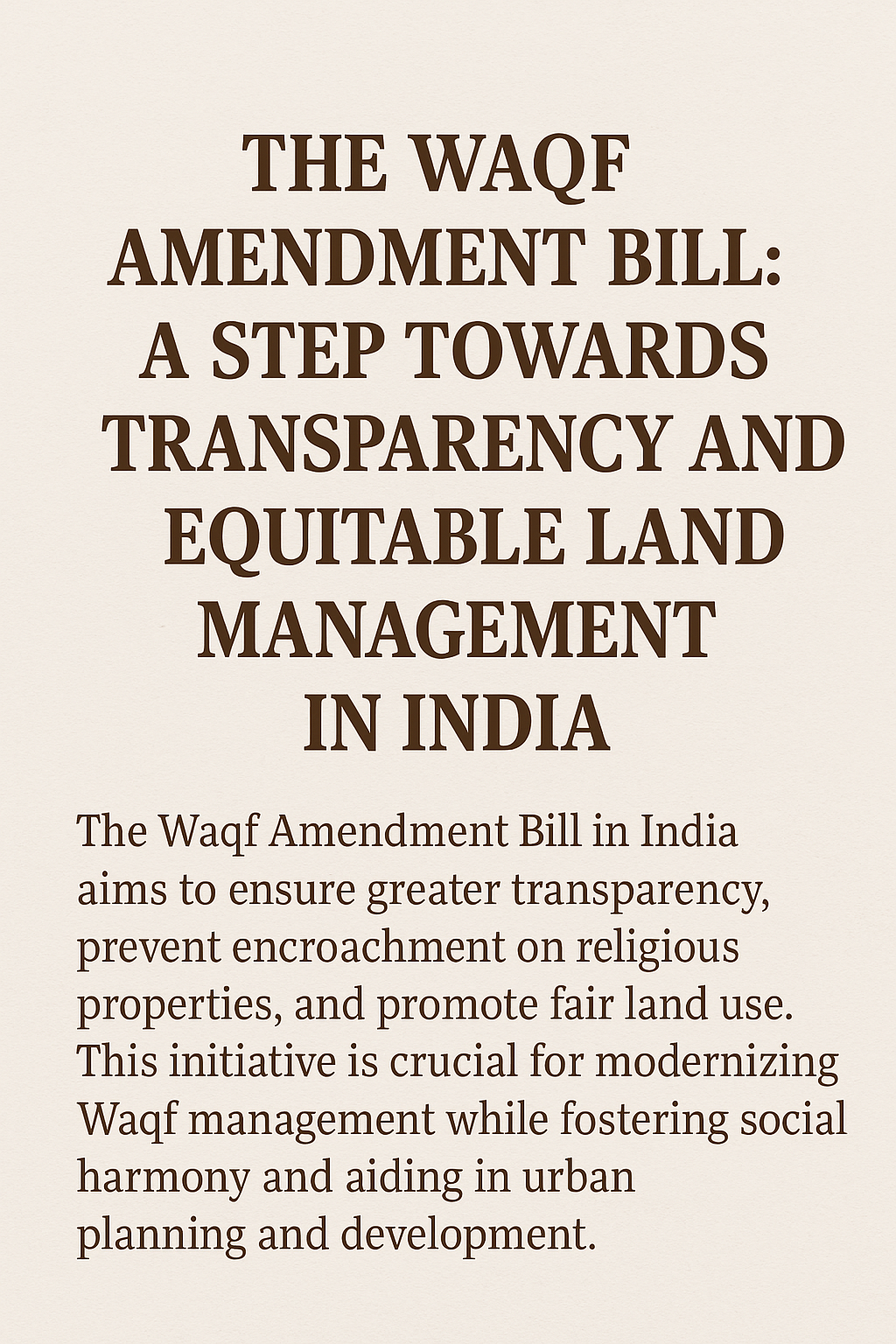Introduction
The Waqf Amendment Bill has sparked discussions in India. It impacts religious land management, governance, and legal transparency. The amendment addresses concerns about waqf property administration. It ensures that these properties serve their charitable and religious purposes without misuse. Understanding its importance in India requires an analysis of historical, legal, and socio-economic factors.
Why is the Waqf Amendment Bill Important?
- Enhancing Transparency and Accountability Waqf properties, donated for religious or charitable purposes, often face encroachment and mismanagement. The amendment enforces stricter regulations. It ensures proper documentation and fair use of these lands.
- Protecting Against Illegal Encroachment Unauthorized occupations and legal disputes threaten waqf lands. The bill refines governance to safeguard properties from encroachment and fraud.
- Balancing Religious and Public Interests The amendment ensures waqf properties serve both religious purposes and public welfare. It aligns them with infrastructure and national development plans.
- Clarifying Legal Jurisdiction The existing Waqf Act creates jurisdictional conflicts. The amendment provides a clear legal pathway for resolving disputes efficiently.
- Encouraging Economic Utilization Many waqf properties remain unused due to outdated laws. The amendment modernizes governance, allowing better use of these lands for education, healthcare, and welfare.
Why is the Waqf Amendment Bill Significant in India?
- India’s Large Waqf Land Holdings India has vast waqf land holdings, spanning thousands of acres. Proper management can prevent financial losses and social unrest.
- Addressing Legal Loopholes The current Waqf Act has vague provisions. This leads to disputes between governments, waqf boards, and private entities. The amendment removes ambiguities and improves governance.
- Promoting Communal Harmony and Social Justice The bill ensures fair management of waqf properties. It prevents political or religious bias while promoting inclusivity and minority rights.
- Aligning with Modern Governance Standards India is moving toward digital land records and transparency. Updating waqf laws reduces corruption and improves efficiency.
- Boosting Urban Development Many waqf lands are in prime urban areas. Their proper utilization can support infrastructure growth. A clear legal framework helps integrate them into development projects.
Conclusion
The Waqf Amendment Bill ensures transparent and legal management of religious properties. Its importance in India stems from vast waqf land holdings and legal complexities. The bill balances religious rights with national development. As it moves through legislative review, it is crucial to maintain a fair governance structure. This will promote justice, economic growth, and social harmony.




